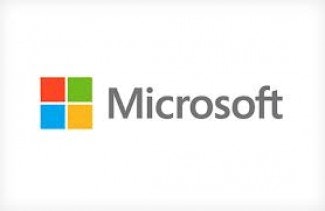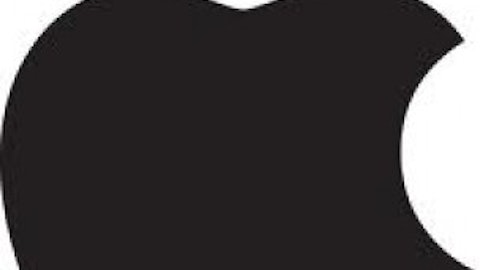
It’s a PC thing
Microsoft Corporation (NASDAQ:MSFT) and Intel Corporation (NASDAQ:INTC) are the dominant names in the personal computer space. However, advances in computer speed and technology have outstripped customer needs. Even computers that are several generations old can capably surf the net, handle office applications, and check email. There’s little reason for customers to upgrade until they absolutely have to.
And then came the casual computer, otherwise known as a tablet. These handy devices are more portable than a PC, even a laptop, and more than capable of surfing the web and checking email. It isn’t as easy to use them for office work, but they can handle those chores, too, if you want them to.
So now, there’s even less reason to upgrade to the newest PC. Thus, sales have been falling for over a year. That’s a big problem for this pair. And it’s all that investors seem to be focused on right now.
The “Win”
The just ended quarter marked the end of Microsoft Corporation (NASDAQ:MSFT)’s 2013 fiscal year. It earned $2.58 a share versus $2.00 a share in 2012. Although that’s positive, if you take out one-time items, the bottom line fell to $2.62 a share in 2013 from $2.78 a share. Weak PC sales were the main culprit, since the rest of the company’s businesses have been doing relatively well.
That investors are hyper sensitive to the PC market makes sense, however it masks some important shifts being made. First off, the company is moving more and more of its businesses toward the web, with Internet-based offerings like Office 365, Skype, and the Azure cloud platform. And the company is gearing up for the launch of the Xbox One, a new gaming system.
On the PC side, important changes are being made, too, but as Amy Hood, the company CFO, noted during the conference call, “With over 1.5 billion Windows users around the world, a transition of this magnitude takes time.” The big shift is creating a common platform for customers across Windows 8, Windows Mobile, and its Surface tablet offering.
Long-term investors should look at the recent price drop as a second chance to buy Microsoft Corporation (NASDAQ:MSFT) shares on sale. The yield is heading back toward 3% and the company’s outlook isn’t as dismal as the PC industry sales suggest.
The “tel”
Intel Corporation (NASDAQ:INTC) has a tougher road ahead of it than Microsoft Corporation (NASDAQ:MSFT). The company is one of the largest chip makers in the world, but relies heavily on PC sales. That’s largely why sales fell from $13.5 billion to $12.8 billion year over year in the second quarter. Earnings dropped from $0.54 a share to $0.39.
However, Intel Corporation (NASDAQ:INTC) has economies of scale that its competitors can’t match. And, more importantly, it’s starting to fight back in mobile. After virtually no mobile exposure, its chips are starting to show up in cell phones. And it just won a contract from Samsung to power a tablet offering. Like Microsoft, change at this giant will take time.
The share price drop has brought the yield back toward 4%. Income investors should view this as an opportunity to add a chip giant at a discount, though there are increasing concerns about the safety of the dividend.
The search king
Interestingly, Google Inc (NASDAQ:GOOG) also felt the sting of mobile in the just ended quarter. The company has been warning investors for some time that mobile ads aren’t as profitable as online ads, but the just ended quarter seemed to bring that issue front and center. The big number was a 6% decline in the amount the company charges for ads.
The shares fell on the news. While sales growth covered up that weakness, the company can only hide margin compression like that for so long before investors start to question the company’s price to earnings ratio of around 26 and nearly $900 share price.
And, the company is increasingly competing with partners with cell phones, computers, and other devices. That’s a risky proposition that’s led partners like Samsung to start weening themselves off of Google Inc (NASDAQ:GOOG) products. There looks to be notable downside risk in Google Inc (NASDAQ:GOOG) shares right now.
Mobile ain’t easy
Although Google Inc (NASDAQ:GOOG)’s Android holds a dominant position in the mobile space, that doesn’t seem to be helping Google Inc (NASDAQ:GOOG) figure out how to charge for mobile ads. Since investors are only just beginning to see the impact of the company’s weakening margins, investors should consider taking profits.
Microsoft Corporation (NASDAQ:MSFT) and Intel Corporation (NASDAQ:INTC) , meanwhile, have been struggling with mobile for some time despite their still dominant industry positions and efforts to get into the space. It appears the market has taken a show-me approach, waiting until there’s notable success before giving either company credit for the important strides they are making. With Wall Street’s low expectations, recent price declines could be a buying opportunity.
Reuben Brewer has no position in any stocks mentioned. The Motley Fool recommends Google and Intel. The Motley Fool owns shares of Google, Intel, and Microsoft. Reuben is a member of The Motley Fool Blog Network — entries represent the personal opinion of the blogger and are not formally edited.
The article A Dismal Wintel Second Quarter originally appeared on Fool.com is written by Reuben Brewer.
Copyright © 1995 – 2013 The Motley Fool, LLC. All rights reserved. The Motley Fool has a disclosure policy.





